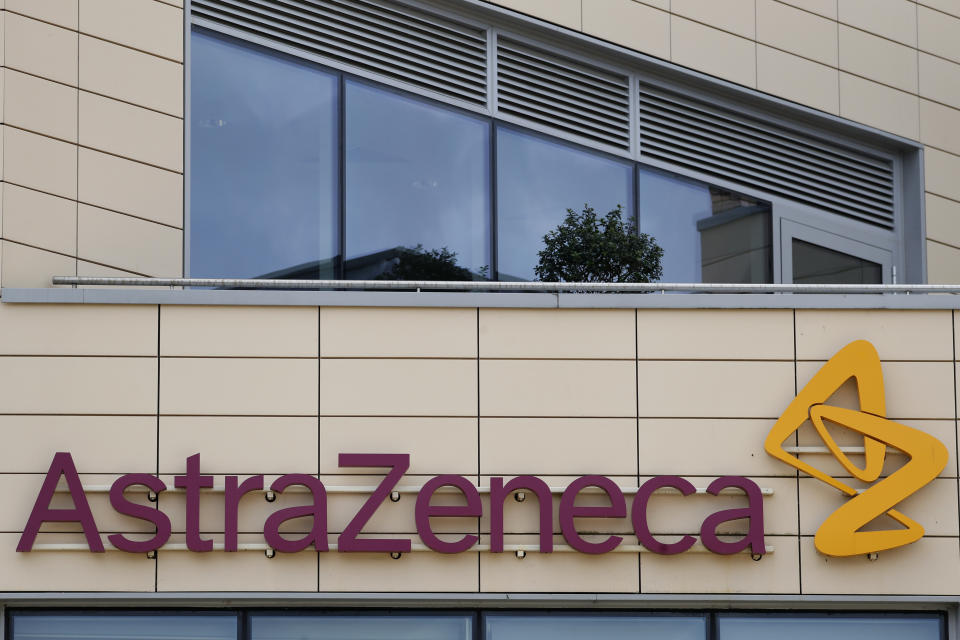Head of UK vaccines taskforce 'optimistic' we could have drug by the end of the year

The head of a government taskforce has said she is hopeful a coronavirus vaccine will be available in the UK by the end of year.
The government announced on Monday that it has signed deals to secure 90 million doses of promising COVID-19 doses.
The latest deal is for vaccines being developed by an alliance between the pharmaceutical giants BioNtech and Pfizer, as well as the firm Valneva.
The doses are in addition to 100 million doses of a vaccine being developed by Oxford University with AstraZeneca, whose early results are due to be published in The Lancet medical journal on Monday.
Kate Bingham, chair of the government’s vaccine taskforce, said it is hoped that a safe and effective vaccine will be available before the end of 2020.
She told BBC Radio 4’s Today programme on Monday: “I still think, optimistically, yes, we’ll be vaccinating by the end of the year.”
However, she warned it could take longer, adding: “I think it’s a possibility but I wouldn’t go to the bank on it yet.”
The latest announcement is for 30 million doses of a vaccine from BioNTech/Pfizer and 60 million doses from Valneva, with an option to acquire a further 40 million doses if needed.
If the BioNTech/Pfizer vaccine is shown to work, regulatory review could be sought as early as October 2020, with up to 100 million doses potentially manufactured by the end of the year.
Read more: Third of Britons say they may not take coronavirus vaccine
Bingham said: “The announcements show that the UK is at the forefront of global efforts to source and develop vaccines and that we’re doing so across a range of different technologies with a range of different companies around the world.
“We have no vaccines against any coronavirus so what we’re doing is identifying the most promising vaccines across the different categories so that we can be sure that we do have a vaccine in case one of those actually proves to be both safe and effective.”
Bingham has previously warned that any vaccine may not provide full immunity.
On Monday, she said: “It is unlikely to be a single vaccine for everybody. We may well need different vaccines for different groups of people.
“The ultimate goal for a vaccine is to be a sterilising vaccine, which means it prevents you from getting infected.

“What I think we may need to start off with and recognise is that the vaccines may just stop the level of mortality. So we may find a vaccine which just helps reduce the symptoms rather than provides a full sterilising immunity.”
The government has also signed a deal with AstraZeneca for 1 million doses in principle of a treatment containing COVID-19 neutralising antibodies.
This could protect those who cannot receive vaccines, such as people with cancer or whose immune system is severely compromised.
Read more: Dominic Raab slams Russia over alleged coronavirus vaccine theft
A new NHS COVID-19 vaccine research registry has also been established with the aim of recruiting 500,000 volunteers by October to test new vaccines and treatments.
Business secretary Alok Sharma said: "The hunt to find a vaccine is a truly global endeavour and we are doing everything we can to ensure the British public get access to a safe and effective coronavirus vaccine as soon as possible.

"This new partnership with some of the world's foremost pharmaceutical and vaccine companies will ensure the UK has the best chance possible of securing a vaccine that protects those most at risk.
"The public can also play their part in vaccine research through the new NHS vaccine research register.”
Valneva has a factory in Livingston, Scotland, and the government is expected to contribute to expanding this facility.
A separate Vaccines Manufacturing and Innovation Centre is currently under construction in Oxfordshire.
Imperial College London is also developing a vaccine with government backing. Its vaccine started human clinical trials in June.
Earlier this month, a survey revealed a third of Britons may decide not to take a coronavirus vaccine.
Health secretary Matt Hancock said: "A safe and effective vaccine is our best hope of defeating coronavirus and returning to life as normal.
"We have some of our best scientists and researchers working on this, but members of the public have a vital role to play too.”
Coronavirus: what happened today
Click here to sign up to the latest news and information with our daily Catch-up newsletter

 Yahoo News
Yahoo News 


